Understanding number sequences Worksheets for Ages 3-8
8 filtered results
-
From - To
Understanding Number Sequences Worksheets for Ages 3-8 by Kids Academy are engaging and effective tools designed to help young learners grasp the concept of numerical order. These printable activities are crafted to strengthen foundational math skills through fun and interactive exercises. Whether your child is just starting with simple sequences or ready to tackle more complex patterns, these worksheets offer a comprehensive approach to learning. Perfect for both classrooms and at-home practice, they support cognitive development and numerical fluency in children. Start your child on the path to mathematical confidence and success with our expertly designed number sequence worksheets!
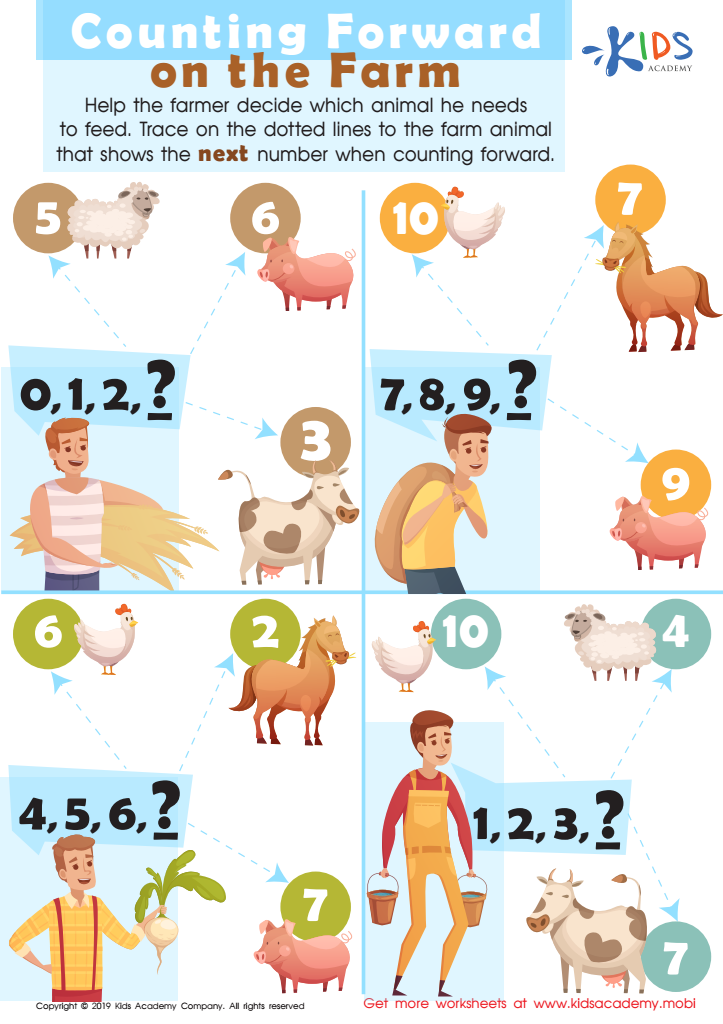

Counting Forward On the Farm Worksheet
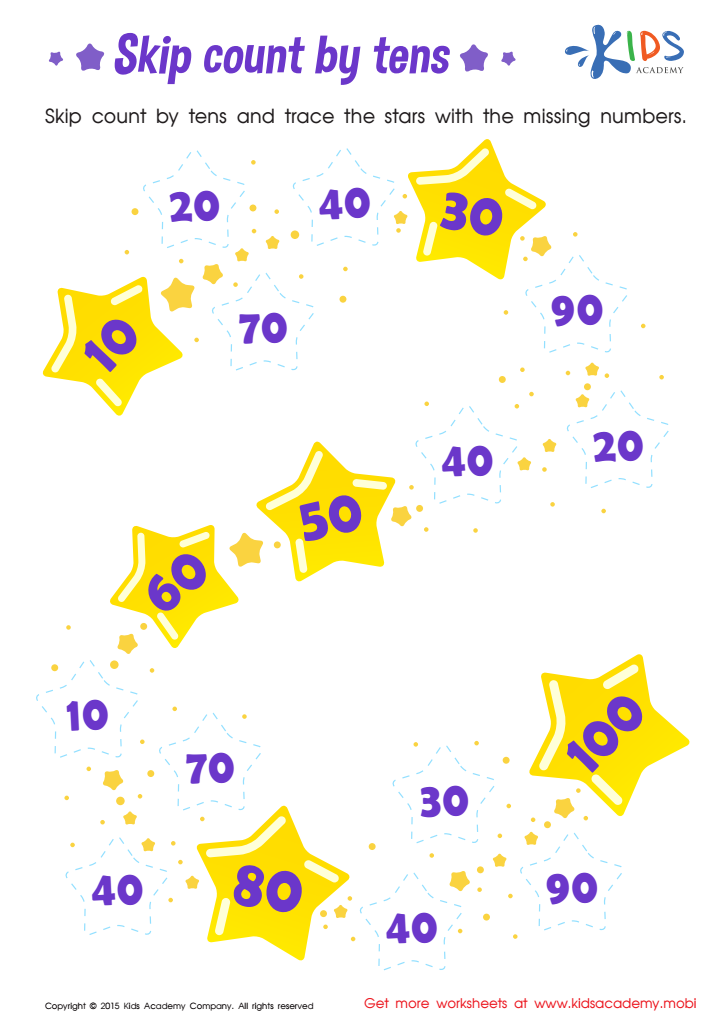

Learn dozens: Skip Count by Tens Printable
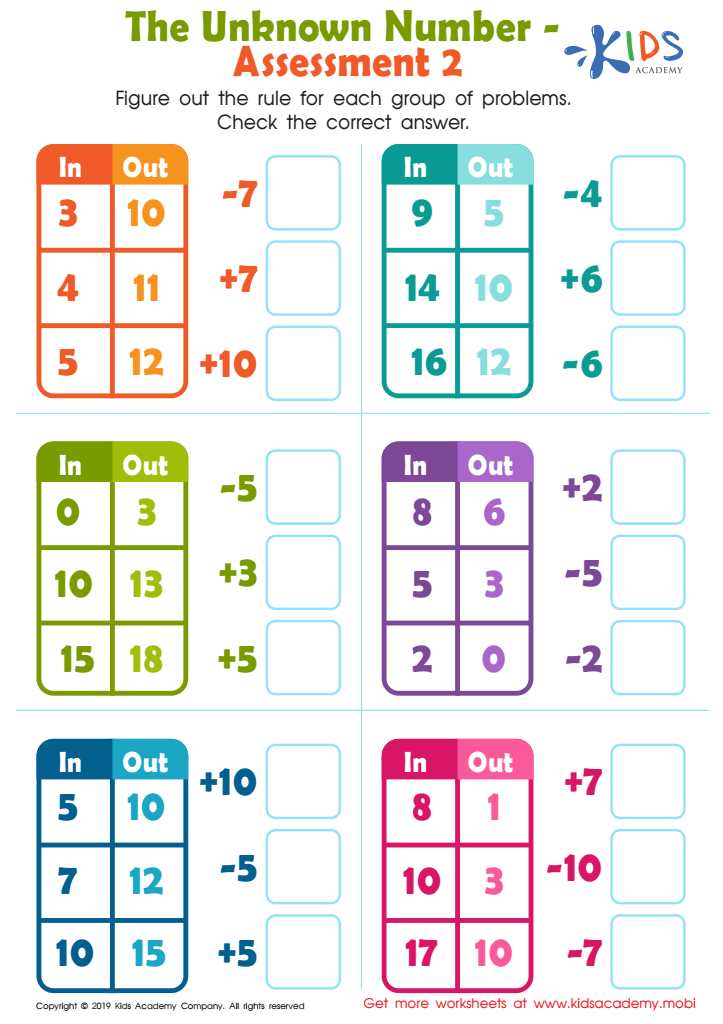

The Unknown Number - Assessment 2 Worksheet
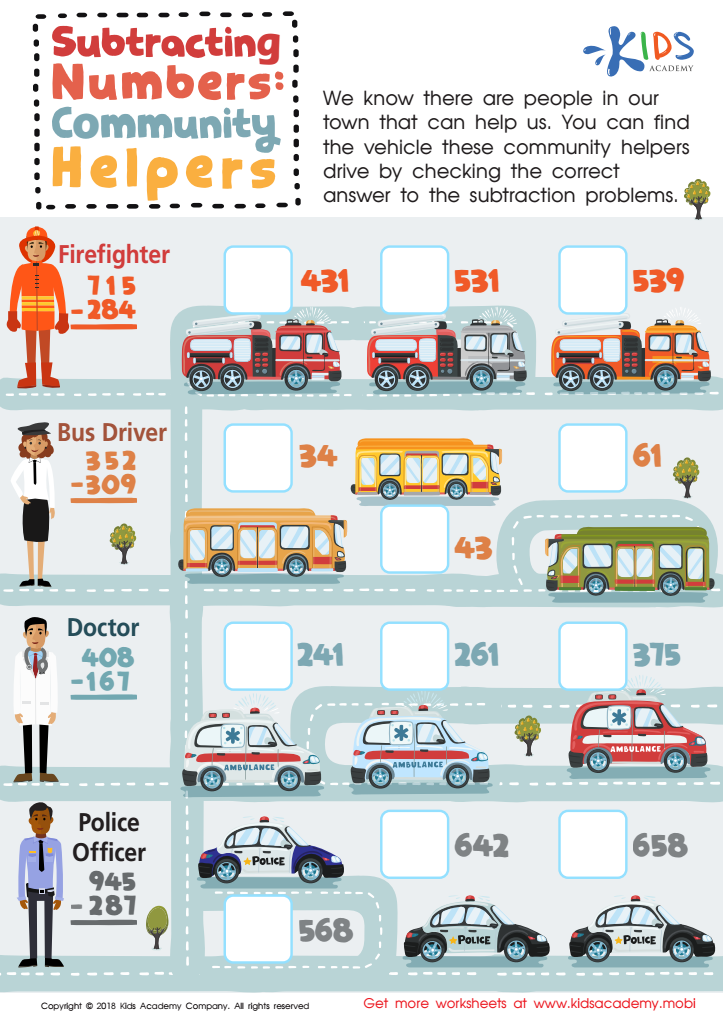

Subtracting Numbers: Community Helpers Worksheet
Understanding number sequences is crucial for young children, ages 3-8, as it forms the foundation for their numerical and mathematical development. At this stage, children's brains are highly receptive to learning patterns, which lays the groundwork for more complex mathematical concepts they'll encounter later. Number sequences help kids grasp the concept of order, predictability, and progression, which are essential skills for both math and everyday life.
For parents and teachers, fostering an understanding of number sequences can enhance a child's cognitive development. It builds their ability to recognize patterns, which is important not just in math but in reading, problem-solving, and life skills. Early exposure to counting and sequences aids in developing memory skills, attention to detail, and critical thinking.
Moreover, a strong grasp of number sequences boosts a child’s confidence in math, turning potentially intimidating subjects into rewarding and enjoyable challenges. This positive early experience in math encourages a lifelong love and curiosity for the subject, leading to better academic performance not just in math but across other subjects that require analytical skills.
Incorporating number sequences into learning activities also promotes fine motor skills, language development, and social interaction through collaborative learning. Therefore, understanding and teaching number sequences during these formative years is indispensable for a child’s overall educational journey.
 Assign to My Students
Assign to My Students


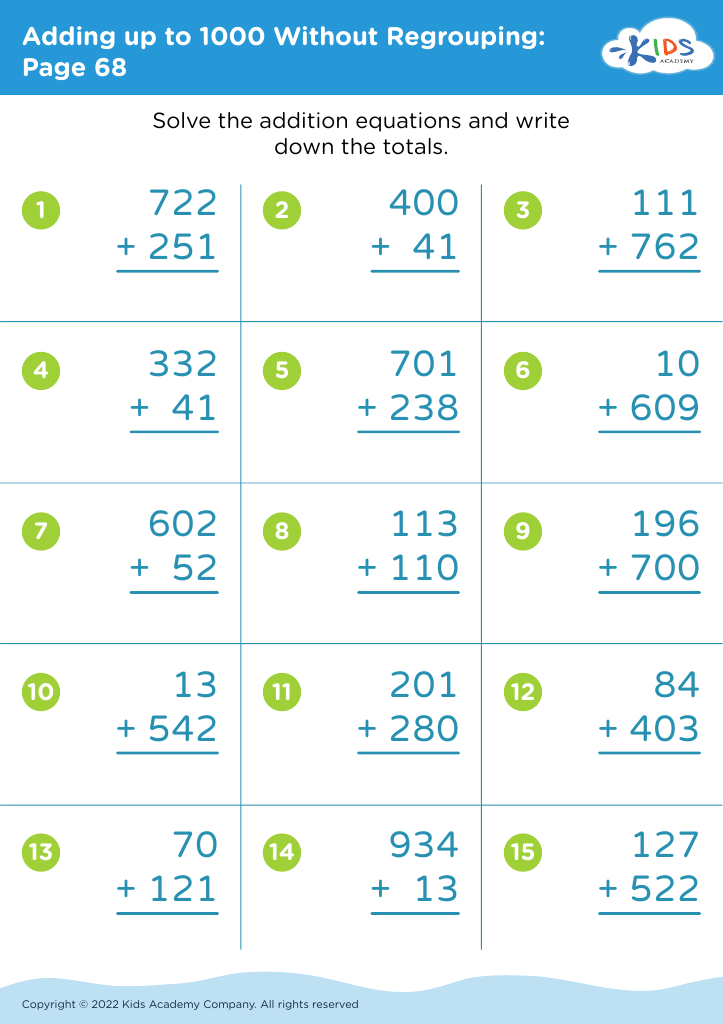


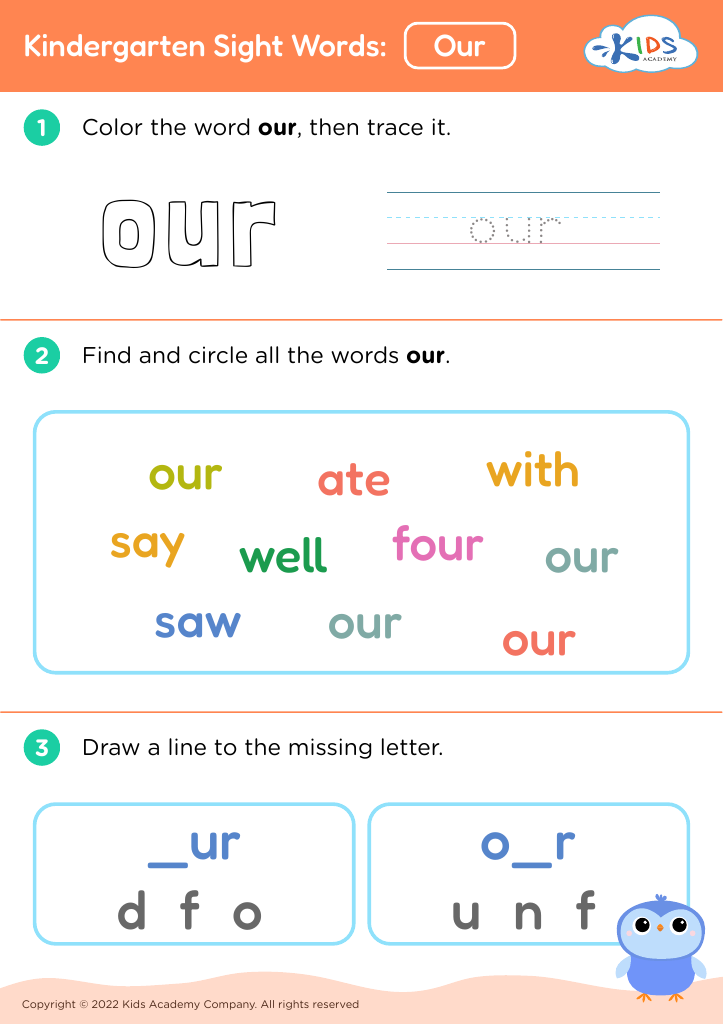




.jpg)












